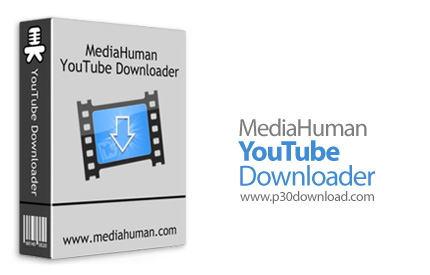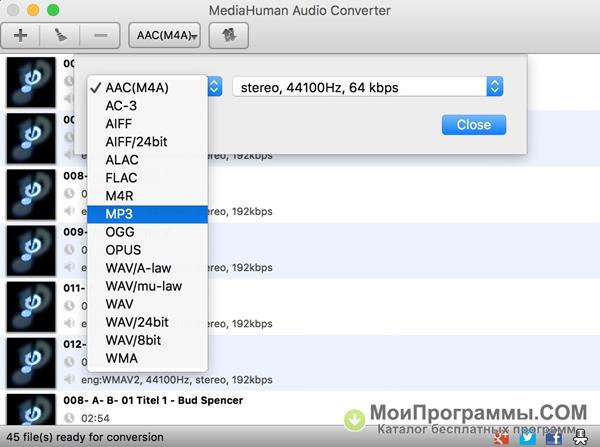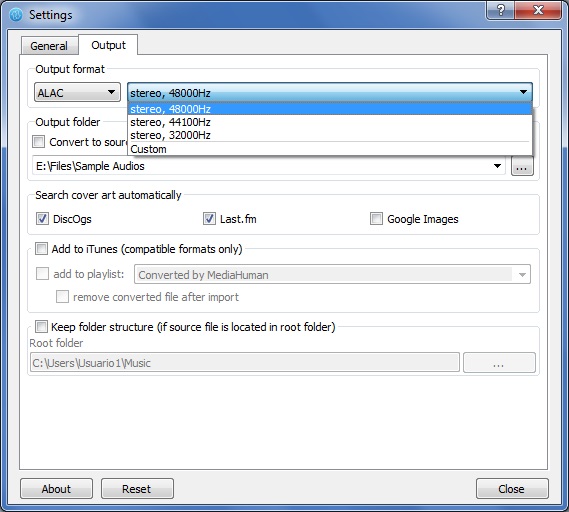
This means that to me the other converters provide the only way to go, if I need to convert APE files to some other format. Fre:ac unfortunately won’t convert from or to APE audio files, a format that is also common, the absence of which can be a deal breaker. All audio converters I review and compare here support the most common formats such as MP3, WMA, WAV, Ogg Vorbis, FLAC, and AAC. But again, you really shouldn't be compressing to mp3 in the first place, unless you're one of the few who still has an "mp3 player" that doesn't support AAC.There exist a lot of free audio converters, and I’d like to help a little by comparing five very well known, including Xrecode, which is not free anymore, yet the last free version of it still works fine. Regardless of how nice the user interface and how easy it is to use, I won't be using or recommending it.įor those who are still compressing to mp3 (which is a really foolish thing to do in this day and age - mp3 was abandoned years ago by the standards bodies in favor of AAC because of mp3's mediocre performance characteristics), MH might be a simple and easy to use option. MH eliminates that AAC advantage altogether by, apparently, imposing its own 20kHz filter on AAC conversions, and I can't condemn that in strong enough words. AAC is a lossy format, but nearly as lossy as mp3. Part of the reason AAC sounds better than mp3 is it has superior audio spectrum. But it was long ago discovered that the original thinking was flawed because it doesn't take into spacial characteristics (sound stage) and high frequency harmonic distortion, etc. For that reason mp3 filters everything above 20kHz. Granted, the human ear can't hear above 20kHz anyway, and that was the original rational used by the standards bodies when they came up with mp3 in 1993 in the first place. If you plot spectrum of the vast majority of iTunes Store purchases you'll find that the spectrum extends to a minimum of 21kHz, and many extend to 22kHz. The conversion with MH yields results which would lead one to believe it's actually using an mp3 codec instead of AAC, with the sharp 20kHz cutoff characteristic of mp3. True to form, XLD yields audio spectrum results that are as close to the original flac as one could hope for (btw, this is only possible if you compress to AAC - mp3 isn't capable of that). For comparison I use Spek, as well as the Plot Spectrum feature in Audacity. I was recently asked my opinion of MediaHuman Audio Converter for compressing flac to AAC/m4a.



I've come to depend on it for yielding the best possible audio results. I'm a long-time and regular user of XLD and have come to appreciate its features and versatility.


 0 kommentar(er)
0 kommentar(er)
